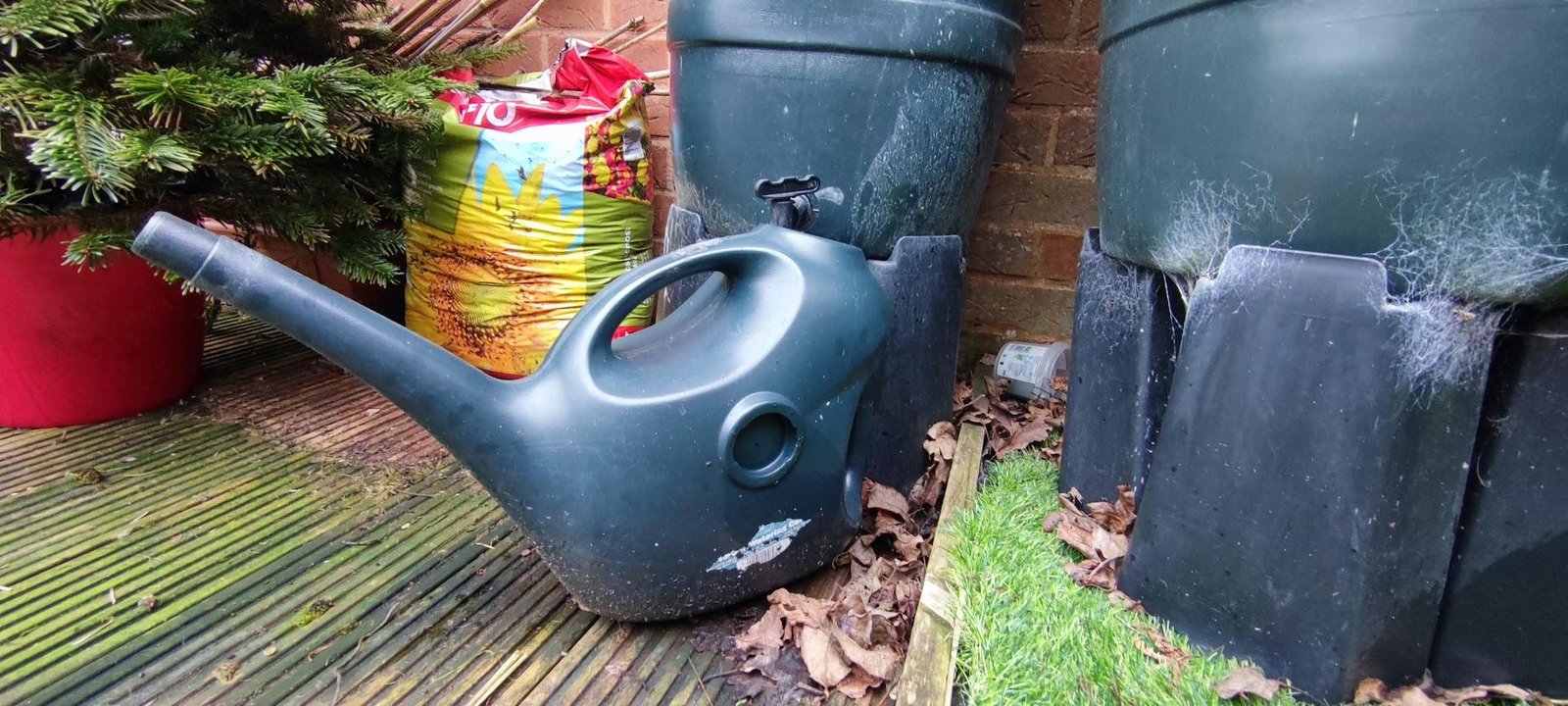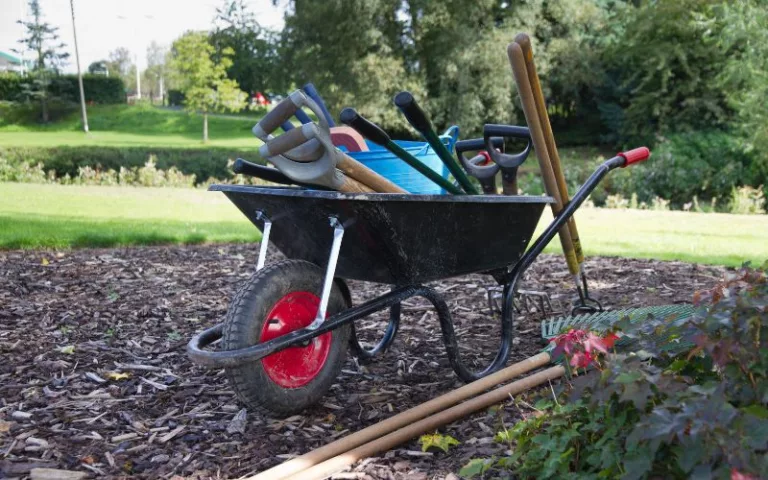Is Rain Barrel Water Safe To Use On My Vegetable Garden?
Just a heads up, this post contains some affiliate links. That means that we earn a small commission if you buy the product at no extra cost to you. That allows us to continue to research and share interesting articles with you. :)
Collecting rainwater in barrels or water butts is something that most gardeners do without thinking about it, but is this rainwater collected actually safe to use on your vegetable plot, and should you be giving any consideration to how you’re collecting water?
I took a deep dive into this topic when it came up as a question asked to me, and this is what I found out.
It is perfectly safe to use rain barrel water to water your vegetable gardens, but there are some precautions you should take. Specifically, there’s a risk from heavy metals coming off of your roof and bacteria such as E.coli in standing water. In most tests, these levels were below limits that are considered dangerous.
There are a few important things to remember before using rain barrel water to water your vegetable garden, and in this article, I hope to explore those considerations and help you to develop a rainwater collection system that is safe and useable throughout your garden.
What Is a Rain Barrel and How Does It Work?
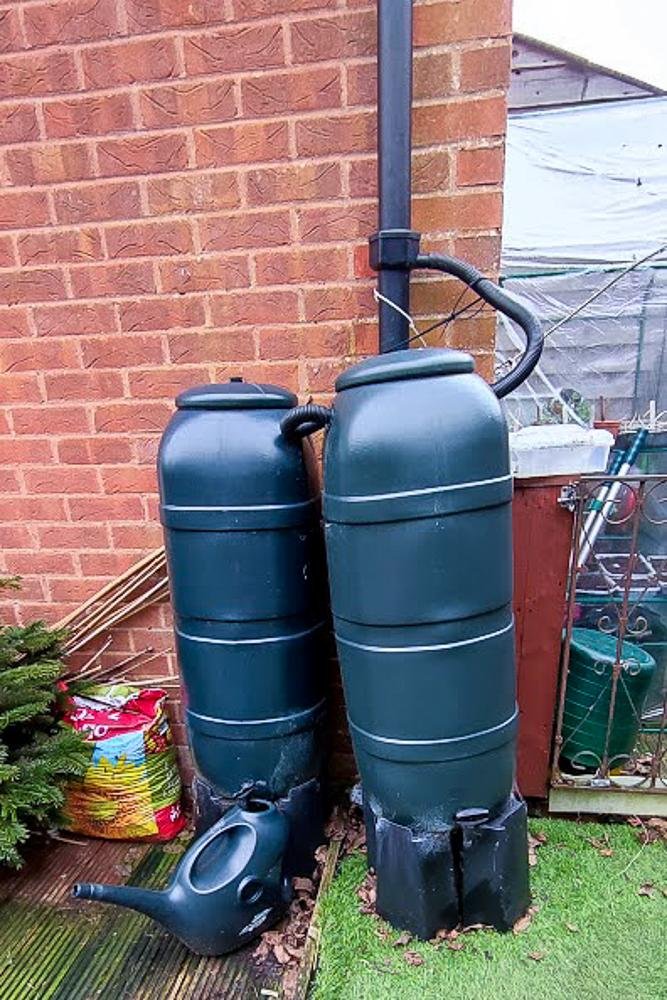
Rain barrel water is collected from household roofs down a series of guttering pipes that funnel water into a barrel. These rain barrels have been traditionally made from wood but in recent years, plastic barrels are the more common choice, as they’re lighter and can be transported more easily when full.
Water is collected from a roof and then stored in a rain barrel that connects to downspout guttering. The barrel generally has an overflow outlet to ensure it doesn’t overflow, which would cause water to run down the side of your house.
This collection system is perfect for collecting larger volumes of water over time so that you have enough for watering your vegetable garden or washing patio furniture on hot summer days.
Benefits of Using a Rain Barrel to Collect Water for Vegetables
Rain collection barrels are a fantastic way to use water that would otherwise be lost by running off of your roof and into the sewage system or ground.
You can have some fun with it, too, and create something really beautiful with wooden or metal barrels. This can be an attractive feature in an urban garden where rainwater collection is easy due to pitched roofs.
Using rainwater is also free of charge, by harvesting the water off your roof before it runs down the drain, you’re conserving water resources.
Having rain barrels for gardens is also a positive step toward sustainable living and takes away from reliance on using traditional municipal water supplies if this is something you are concerned about.
Harvesting rainwater using rain barrels or water butts in your own backyard or your own garden gives you the added bonus of being able to have access to large volumes of water for your garden, even if there is a hosepipe ban in your area, this means your vegetable garden won’t go without during periods of drought.
The Risks Associated With Using a Rain Barrel to Collect Water
So you’ve decided to start using rain barrels for gardening, but are you aware that there are some risks involved?
Rain collection systems such as these cause problems for the environment as well as for you.
Risk From Chemical Exposure
The biggest risk you run is from the chemicals that may come off of your roof as a result of rain falling on it.
If you have some standing water in a rain barrel, this can harbor harmful bacteria like E.coli, which can make you ill if ingested.
Risk From Heavy Metal Exposure
Another problem is the presence of trace amounts of heavy metals that can be found in rainwater. These may include lead, arsenic, and copper, which are dissolved from your roof and water pipes over time. They have been linked to a range of health problems, such as kidney failure and cancer.
Any kind of pipe that uses lead can corrode over time and leak into your drinking water, and this can be dangerous for everyone in the household.
Other Risks From Harvested Rainwater
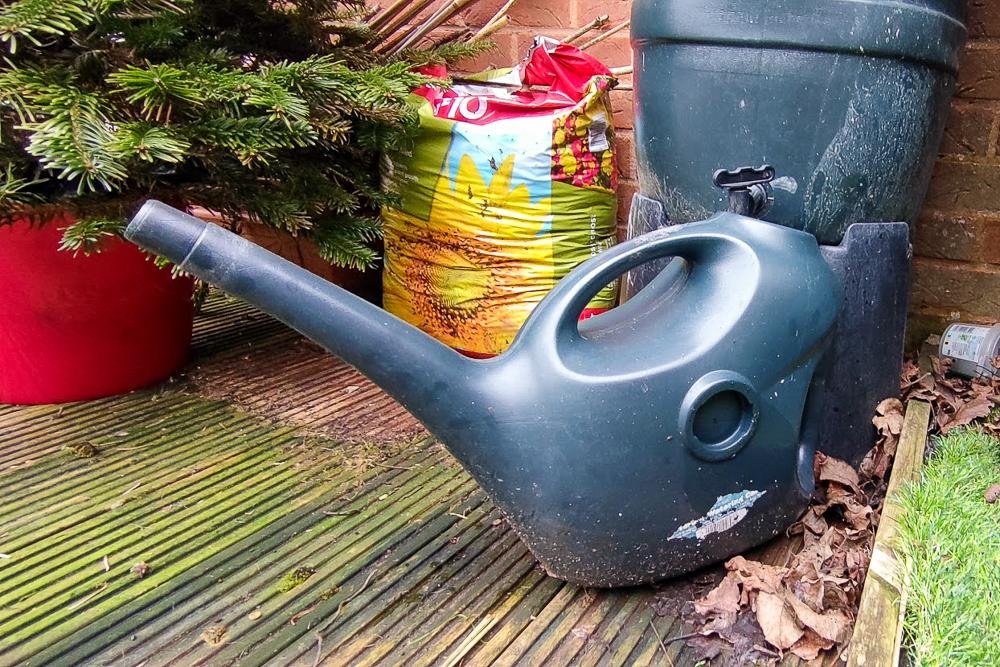
If the water has been sitting stagnant in the barrel for a few days, there’s a chance that some harmful bacteria could be present in the standing water.
Some of these bacteria can cause illness in humans and pets ranging from a simple upset tummy right up to serious life-threatening illness.
The main issues to consider include:
- Botulism – a type of food poisoning
- Cryptosporidium – A fecal-borne bacteria
- E.coli – A harmful bacteria commonly found in feces or as a result of human and animal waste, which causes severe stomach cramps, diarrhea and vomiting.
- Dysentery – This is a bacterial infection that occurs when you consume food or drink that has been contaminated by the feces of an infected person. It’s very serious, and although it’s rarely fatal, it can cause life-long complications.
- M. marinum – This is a bacteria that causes infections in the skin, lungs, and urinary tract.
- Campylobacter – A diarrheal illness that has symptoms similar to what you’d experience with E.coli, but it can be easily treated in most cases with antibiotics.
- Aquarium Granuloma – Caused by a parasitic crustacean that has been exposed to sunlight.
- Legionnaires – This is a dangerous form of pneumonia that can be fatal if left untreated.
It should be stressed that although collected rainwater may not be safe to drink without filtration, in most cases it is perfectly fine to use for irrigation in your garden, and there are even some benefits of using rainwater over drinking water in your garden.
If you are at all worried about the safety of your harvested rain barrel water, pick up a water testing kit to test the water in your barrel or water butt to get a clearer idea of what’s going on.
Is Harvested Rainwater Safe To Drink?
Whilst there are regulatory bodies in both the UK and the US that govern drinking water, rainwater does not fall under these regulations. This means that the rain barrel water itself isn’t considered safe to drink unless it has been properly filtered.
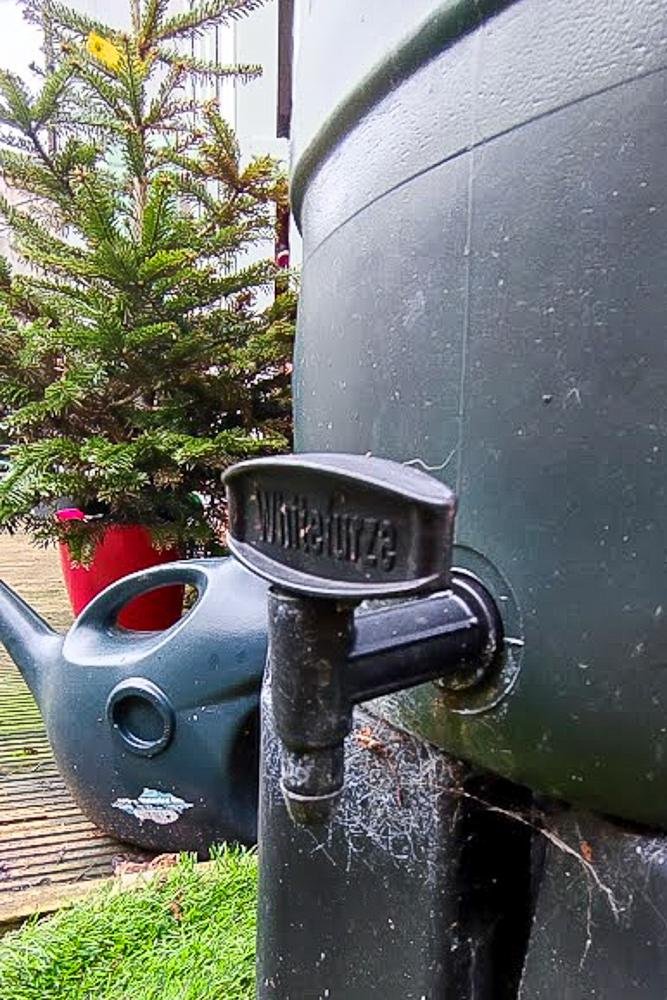
Due to the risk of contaminants and the generally poor storage of rainwater in water butts or rain barrels, rainwater is not safe to drink by humans without filtration first, but, in general, most rainwater collections systems installed in domestic gardens do contain water that is safe to use on plants and vegetables.
Most countries around the world set limits for the levels of contaminants in safe drinking water. In the UK The Drinking Water Inspectorate (DWI) is the government-approved independent body that regulates safe drinking water in both England and Wales.
The DWI works with the Department for Environment, Food & Rural Affairs (DEFRA) to keep the maximum limits for toxins known as the maximum contaminant level goals (MCLG) in drinking water.
In the United States, the Environmental Protection Agency (EPA) sets limits on what is considered safe for drinking water.
How to Use a Rain Barrel to Water Your Vegetable Garden Safely
While there are risks associated with using rain barrel water for your vegetable garden and home use in general, most of them can be prevented by simply taking care to ensure the rainwater you are collecting is safe to use.
The first step to using water butt or rain barrel water from your garden is to ensure that your water butt or rain barrel is clean before you set it up.
Give the outside and inside of the barrel a thorough clean with a disinfectant such as bleach, and then rinse with clean water.
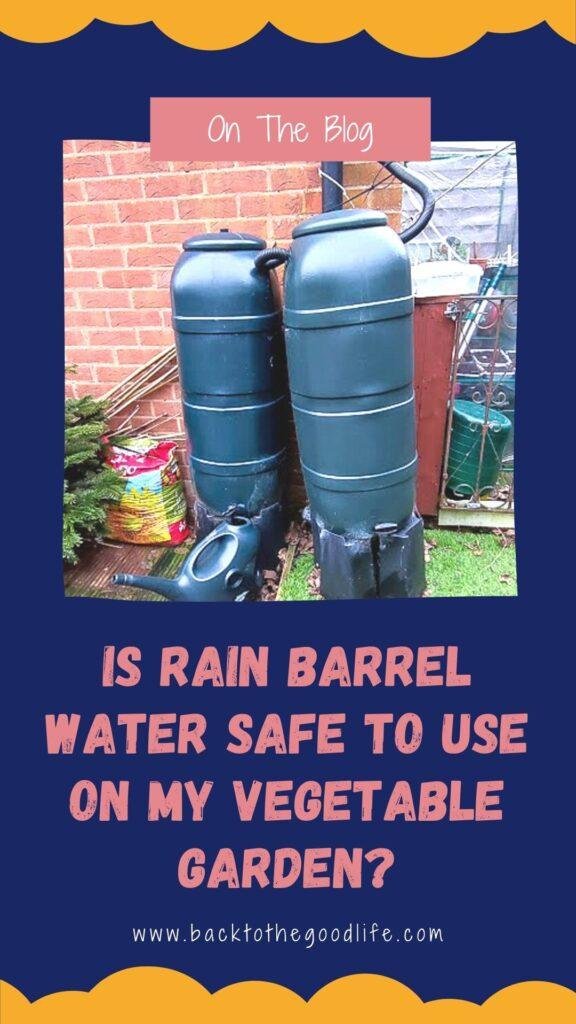
The next step is to ensure the lid is well-fitting, this will stop the majority of insects and animals (such as rats and other rodents) from getting into your rain barrel or water butt.
Finally, install a simple filter on your downpipe, this doesn’t need to be a full water filtration system, but a simple mesh or net filter to collect the majority of the debris will do. This will stop debris such as leaves and moss from getting into your barrel and causing problems.
It should be noted that any mesh, net, or filter will need a regular clean-out.
The main risk associated with untreated rain barrel water is contamination during storage, and it’s possible to treat this by keeping your barrel or butt well balanced and by ensuring the lid is kept closed when not in use.
Back To The Good Life is a participant in the Amazon Services LLC Associates Program, an affiliate advertising program designed to provide a means for sites to earn advertising fees by advertising and linking to Amazon.com. We also participate in other affiliate programs which compensate us for referring traffic.

